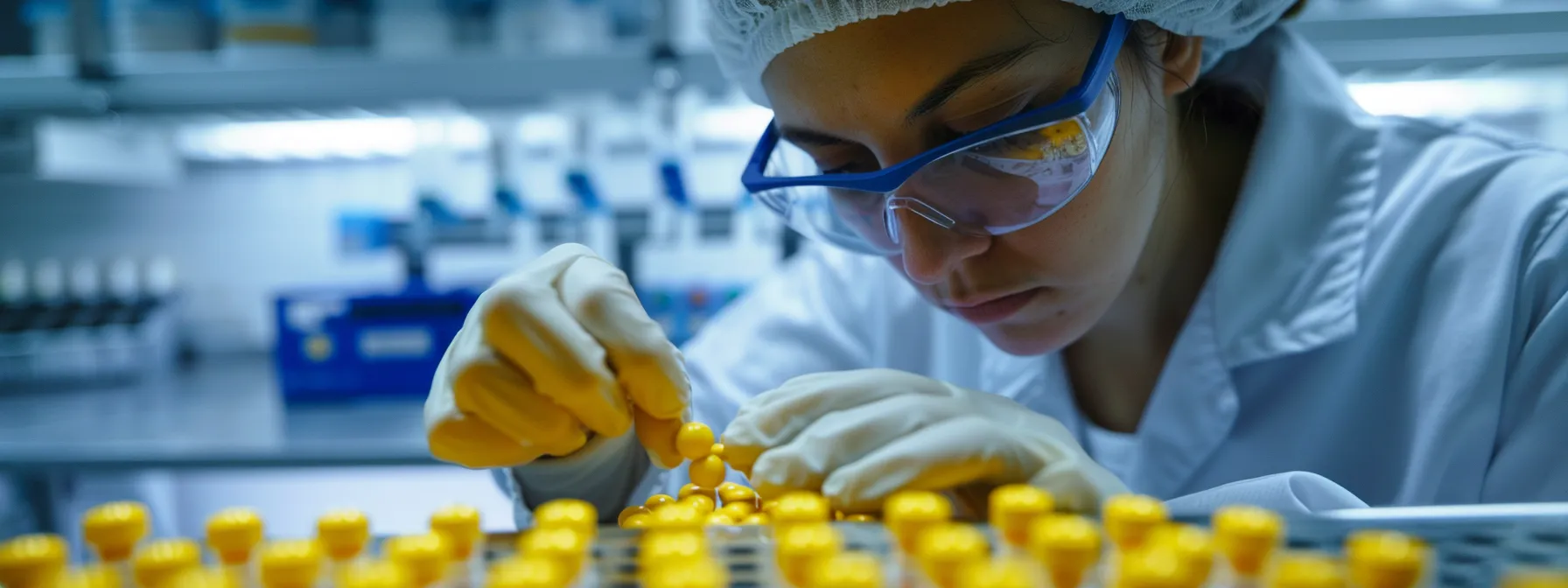The Backbone of Precision: Why Quality Capsules are Essential in Scientific Research
In the realm of scientific research, precision is not just a goal; it’s a stringent requirement. Every element used within the laboratory must contribute flawlessly to the accuracy of results. Quality capsules play a crucial role in the execution of controlled experiments, particularly in fields such as pharmaceuticals, chemistry, and biology. As seemingly inconsequential as they may appear, these tiny vessels can hold the key to groundbreaking discoveries and improved treatments. Below, we delve into the importance of maintaining high-quality standards for capsules and how they uphold the integrity of research.
The Role of Quality Capsules in Ensuring Research Integrity

In scientific research, trusting every component—including capsules—is crucial to ensure accurate and safe delivery of active ingredients. High-quality capsules prevent compromised data and maintain consistency, which is vital for reliable, reproducible results. Variations in capsule quality can skew findings, making strict quality control from production through storage essential.
Loti Labs capsules exemplify this commitment to quality by providing uniform dissolution rates, stability, and resistance to external factors. Their rigorous standards help researchers maintain experimental integrity and confidence in their outcomes, reinforcing the solid foundation necessary for credible scientific inquiry.
How Capsule Variability Can Impact Scientific Studies
Capsule variability can disrupt scientific studies through inconsistent wall thickness, size, and dissolution rates. These differences often go unnoticed until data inconsistencies appear, compromising accuracy. In medical trials, incorrect dissolution timing skews drug delivery, affecting results on efficacy and safety.
Environmental instability further complicates outcomes—capsules that react differently to humidity or temperature degrade unevenly, altering dosage and data integrity across tests. Such discrepancies undermine experimental control and reproducibility. As research builds cumulatively, even slight inconsistencies in capsule performance can lead to compounding errors, delaying progress. Uniformity is essential to preserve data reliability and uphold the integrity of scientific findings.
The Importance of Capsule Composition in Controlled Experiments
Capsule variability poses serious risks to scientific studies, often surfacing only when data inconsistencies appear. Differences in capsule wall thickness, size, and dissolution rates can cause unpredictable drug release, distorting results, especially in clinical trials where timing is critical. If capsules dissolve too quickly or too slowly, active ingredients may be delivered improperly, skewing measurements of efficacy and safety.
Environmental instability further complicates research; capsules that degrade unevenly under humidity or temperature changes affect dosage accuracy and experimental reliability. These inconsistencies can undermine the reproducibility of studies, with even minor deviations disrupting data integrity. As scientific research advances, consistent capsule performance becomes essential.
Innovations in Capsule Manufacturing for Enhanced Research Precision

Recent advances in capsule manufacturing stem from the need for precision in scientific research. Innovations in encapsulation materials and production methods now support a wider range of demanding applications. Customizable release mechanisms are a major breakthrough, enabling controlled or trigger-based ingredient delivery, which is vital for drug delivery studies.
Automation has further refined production by improving consistency and reducing human error, ensuring exact specifications are met. Manufacturers now invest heavily in R&D to expand capsule capabilities, directly enhancing researchers’ ability to conduct accurate, high-stakes experiments with confidence.
Regulatory Standards for Capsule Quality in Scientific Research
Regulatory standards ensure quality assurance in capsule production for scientific research. Agencies like the FDA and international bodies enforce strict manufacturing protocols, requiring compliance with precise criteria for purity, safety, and efficacy. Manufacturers must pass regular audits to verify adherence, giving researchers confidence in the integrity of the capsules they use.
These regulations safeguard not only the scientific process but also the well-being of clinical trial participants, prioritizing safety at every stage. Though regulatory frameworks differ globally, there’s a strong push for harmonization to streamline international collaboration and uphold consistent quality across borders. This shared commitment allows researchers worldwide to rely on uniformly high standards, regardless of where the capsules are produced.
Altogether, the significance of quality capsules in scientific experiments cannot be overstated. They are not mere vessels; they are integral components that can make or break the validity of study results. Therefore, ongoing investment in their quality and regulation remains a cornerstone for the credibility and success of scientific research.







